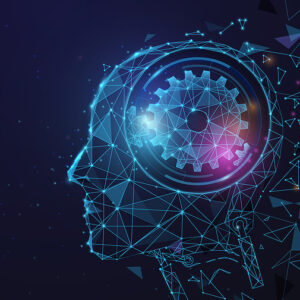How many times have we heard from our leaders that their administration will be the one to finally end cancer? Medical innovation in the United States is profound compared to the rest of the world. Still, clearly, there are many more discoveries to be made.
For breast cancer survivors like myself, the intersection of artificial intelligence and healthcare represents not just hope but tangible progress in the fight against this devastating disease.
Reflecting on my journey and those of so many others affected by all types of cancer, I can’t help but get excited at the potential of AI to revolutionize diagnostics, pharmaceutical innovation and direct patient care.
Diagnostics is the frontline in the battle against cancer, and it holds incredible significance for survivors. According to Harvard’s School of Public Health, using AI to make diagnoses may reduce treatment costs by up to 50 percent and improve health outcomes by 40 percent. Early interventions tend to cost a lot less.
New AI-driven systems are emerging, such as AsymMirai, which simplifies risk prediction by comparing differences between mammograms and can accurately predict breast cancer five years in advance. That’s a game-changer.
Innovation in early detection could spare countless women from unnecessary tests and invasive late-stage procedures, reducing the physical and emotional toll of the diagnostic process. As a survivor who had zero genetic markers and a limited family history of cancer, this breakthrough in early detection is what I needed when my fight with cancer first began. But that’s just the start.
In addition to earlier detection of breast cancer, AI has shown promise in recognizing skin cancer better than experienced dermatologists. A recent study found that AI detected skin cancer more accurately than 58 international dermatologists after examining more than 100,000 images. The importance of accurate and timely cancer detection cannot be understated.
Outsourcing imaging diagnostics to AI could lead to quicker results, lower costs and better outcomes for patients and healthcare consumers.
In addition to diagnostics, the effect of AI on pharmaceutical innovation is equally exciting. While the advancements in pharmaceuticals over the last few decades have been monumental, AI could further expedite the drug discovery process and bring life-saving treatments to patients faster and cheaper.
On average, developing a drug takes more than 10 years and millions of dollars, but AI could streamline that process by better predicting how potential drugs might behave in the body. This would effectively eliminate a lot of slow-moving lab work.
Clinical trials for fully generative AI pharmaceuticals are already happening. Companies started trials last year for a drug called INS018_055, which aims to treat a chronic lung disease known as idiopathic pulmonary fibrosis. The hope is that AI can be applied to create more effective treatment options with fewer adverse side effects at a much quicker pace.
AI can easily analyze the entirety of medical records, scans, labs and other pertinent information to determine quickly which medications or treatments will be most effective. For providers, that means more time spent with patients and less staring at paperwork. Anyone who has worked in an office setting understands the connection between paperwork and staff burnout. AI can help alleviate burnout.
AI developers have taken flak recently from skeptics for their confidence that AI will function like a personal assistant and won’t disempower human beings.
From 2021 to 2022, more than 71,000 physicians left their clinical jobs citing overwhelming administrative burdens associated with patient care. That means tasks such as charting during or after patient visits, calling in prescriptions to pharmacies and then being put on hold, determining billing codes, and other tedious, you might say, soul-crushing work.
Healthcare professionals are in the people business, and AI can empower them to spend more time with people. There’s a lot of reason to be hopeful. With my cancer behind me and my eyes toward the future, I’m really encouraged by what AI could bring to healthcare.


